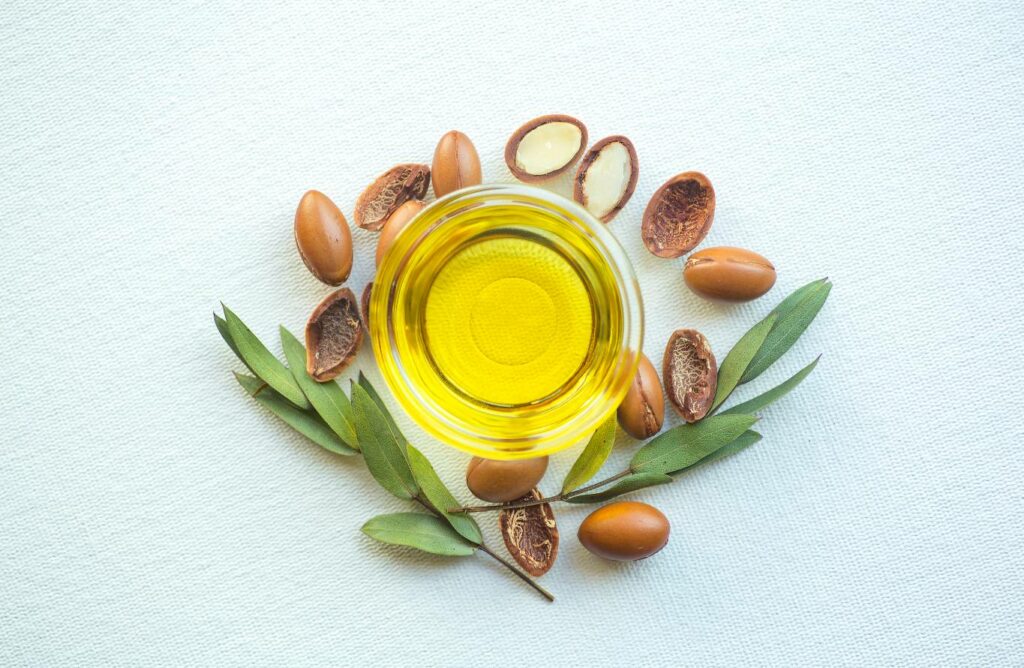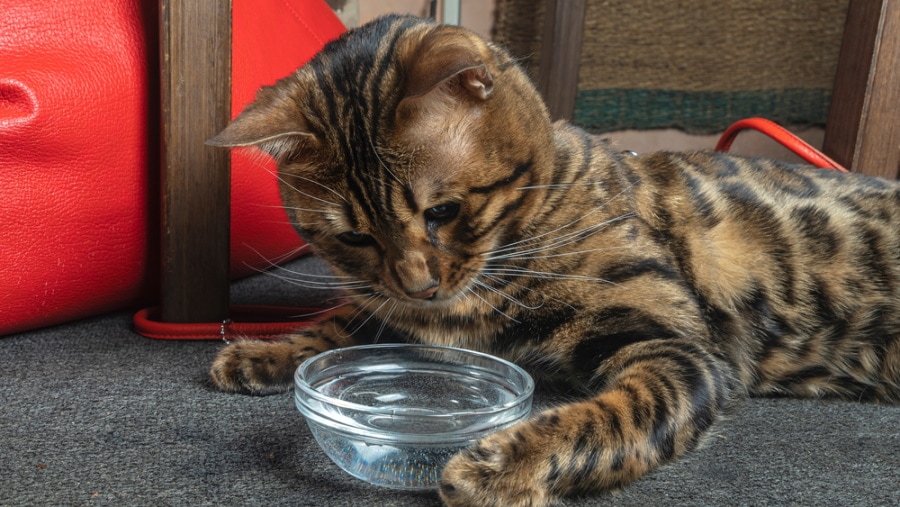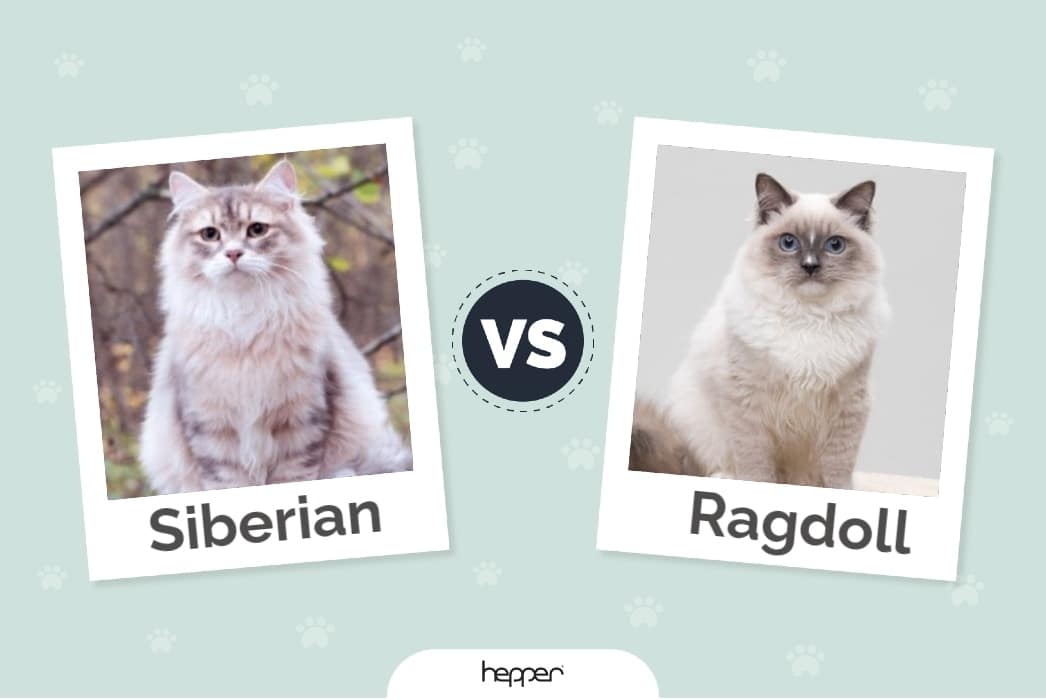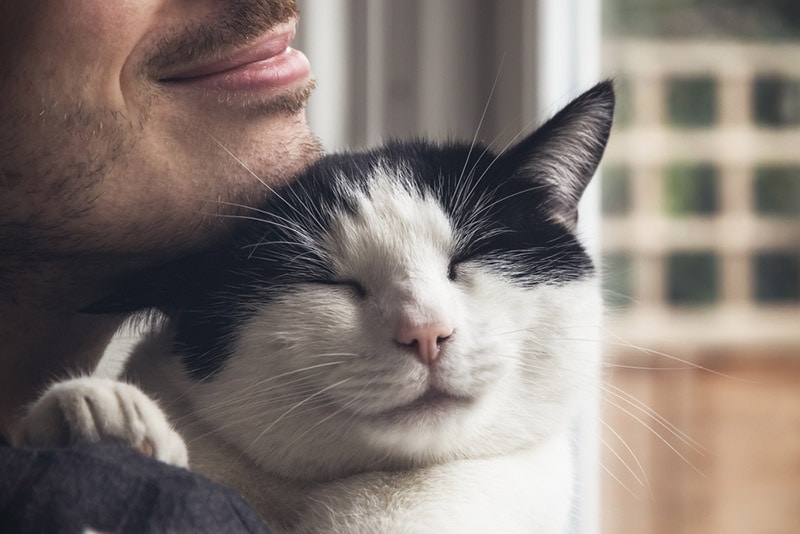Is Argan Oil Safe for Cats? Vet-Approved Health & Safety Facts
By Jordyn Alger
Updated on

Click to Skip Ahead
Argan oil is derived from the argan tree and is considered a non-refined vegetable oil. It is often used in beauty and cosmetics, and its fatty acids provide health benefits to skin or hair. Due to the benefits of argan oil, you may have heard that it is also good for your cat. However, it is best to avoid giving argan oil to your cat. In this article, we’ll discuss the risks of using argan oil on your cat.
Active Ingredients in Argan Oil
Argan oil is made up largely of fatty acids and phenolic compounds. This includes caffeic acid, oleuropein, vanillic acid, tocopherols, tyrosol, and catechol. A large portion of the fatty acids in argan oil are oleic and linoleic acids, making it a heart-healthy oil high in omega-6 fatty acids.
Another benefit of argan oil is that it is an excellent source of vitamin E. Vitamin E is a powerful antioxidant that boosts your skin, hair, and eyes health. Other antioxidants in argan oil, such as melatonin and plant sterols, provide it with anti-inflammatory properties.
All of these active ingredients in argan oil sound great, right? As wonderful as they are for humans, that doesn’t mean they benefit cats. But why?

Why Argan Oil Is Not Recommended for Cats
The main reason that argan oil is not recommended for cats is due to the limited amount of research on how it affects felines. Many have shared its anecdotal benefits, but there is currently little to no research to back this up. At this time, it is largely unknown what argan oil’s short-term and long-term effects are on cats.
With so little research, allowing your cat to ingest argan oil is just not worth the risk. Unless you are 100% certain that something is safe for your cat, it should be kept away from them. Even applying argan oil topically to your cat’s coat is not advised.
Since cats are fastidious groomers, they spend lots of time licking their coats to keep themselves clean. When you apply argan oil to your cat’s coat, they lick it when grooming. Therefore, keeping argan oil away from your furry friend is best until more is understood about its effects.
Argan Oils Are Often Mixed With Essential Oils
Commercial products that contain argan oil may also contain various essential oils, such as tea tree oil. That doesn’t make argan oil any better for your cat; it makes it more dangerous. Essential oils can be highly toxic for cats. The chemicals they contain can be rapidly absorbed to be metabolized, but your cat’s liver cannot process them.
The enzymes needed to break down essential oils are minimal in a cat’s liver, and the oil’s chemicals can rapidly accumulate in their system. All it takes is a few licks for your cat to experience toxic effects. Sometimes, skin contact alone can cause an adverse reaction.

Signs of Essential Oil Poisoning
Knowing the signs of essential oil poisoning is vital to getting your cat the care that they need. Once your cat displays signs of toxicity, you must not delay. Time is essential in reaching a favorable prognosis.
- Essential oil fragrance on fur, skin, or breath
- Redness or burns on the skin, lips, gums, and tongue
- Excessively pawing at their face
- Drooling
- Vomiting
- Struggling to breathe
- Lack of coordination when walking
- Lethargy
- Muscle tremors
If you notice any of the above signs, contact your vet immediately.
What to Do If Your Cat Ingests a Toxin
If you know or suspect your cat has ingested something toxic, call your veterinarian or the Pet Poison Helpline immediately. If possible, keep the label or package from the ingested item so you can report exactly what your cat consumed to a professional.
Do not attempt to induce vomiting unless otherwise instructed. Doing so may worsen your cat’s condition. Listen to the instructions provided by your vet and make your way to an emergency clinic as soon as possible.
Final Thoughts
The effects of argan oil on cats are largely unknown, so it is best to keep it away from your pet. Some argan oil products contain essential oils, which are proven to be extremely dangerous to felines. If you are ever concerned that your cat has ingested something they shouldn’t have, seek professional help right away.
Featured Image Credit: vovidzha, Shutterstock












